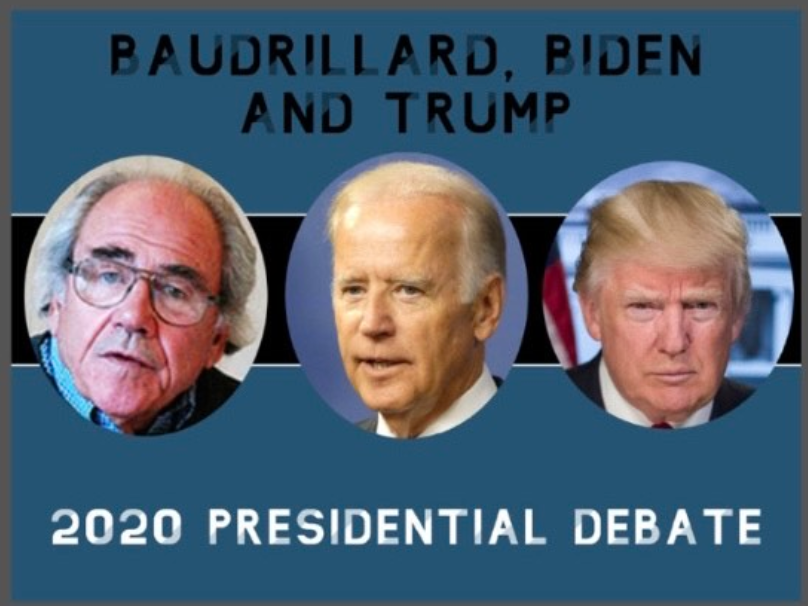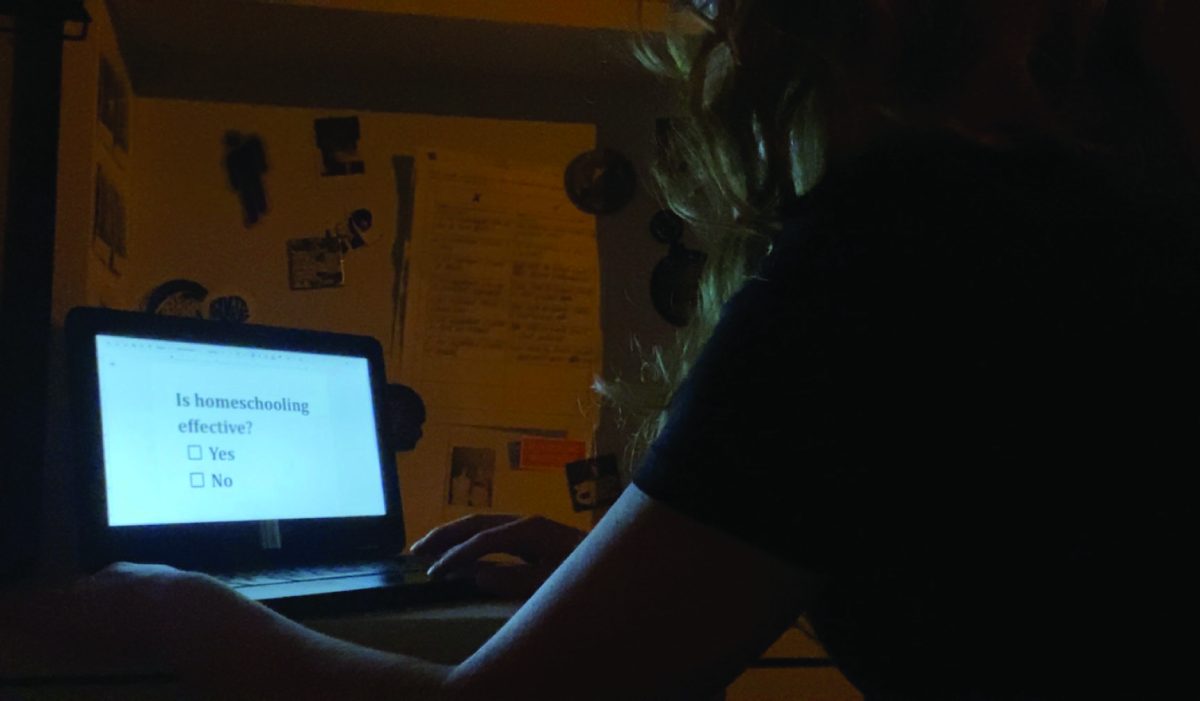OPINION: Baudrillard, Biden and Trump: Understanding the debates
October 9, 2020
OPINION
The first 2020 Presidential Debate, a now infamous event, went terribly. All parties in the political spectrum are angered with the way the debate went, from the interruptions to the overall attitudes of the candidates. Saturday Night Live’s parody of the debate already has 16 million views on YouTube, with comments such as “this isn’t a parody, it’s a retelling,” and “this was actually more civil than the debate.”
Like many Americans, if you are struggling to understand just what happened at the debate, perhaps consider viewing it through a philosophical outlook. When considering the debate, it is critical that a perspective is formed where one doesn’t consider the debate to be a one time phenomena, but instead, a societal constant.
One sociological perspective that explains the debate is Jean Baudrillard’s hyperreality in Simulacra and Simulation, a postmodern condition where individuals are unable to distinguish reality from an image. Baudrillard believes that under the postmodern condition, individuals escape into a late capitalist intensity. This intensity is marked by society becoming flooded with meaning, where an endless creation of meaning has killed meaning.
An example of this can be seen in individuals worshipping certain celebrities, video games, television shows, politicians, brands, etc. Baudrillard believes that we are caught up in the image of certain things and believes that we are not in the reality of the world. The issue though, is that Baudrillard believes that it becomes more and more impossible for an individual to distinguish between an image and reality. As American philosopher Frederic Jameson puts it in Postmodernism, or, the Cultural Logic of Late Capitalism, “We are … so far removed from the realities … that we inhabit a dream world of artificial stimuli and televised experience.” This becomes an issue in the Presidential debate, when it becomes increasingly difficult to determine the authenticity of either candidate’s argument.
Baudrillard warns of the dangers of hyperreality, and fears of the way in which people come to only seek stimulation through hyperreal images. This causes people to become caught in illusions that do not represent a real person. Political figures and celebrities have entire Public Relation departments that construct images for themselves, images that aren’t a real version of themselves, but instead a hyperreal image. This issue can also be seen in professional athletes being perceived as invincible and superhuman, when instead they are just as mortal and fragile as the rest of us. This is also seen in ‘reality television,’ which ironically doesn’t portray reality at all. Its symptoms are seen also in consumerism and materialism, where people value objects like Supreme bricks and Bugattis not for their usability, but for their image. Baudrillard believed that because of this, “we live in a world where there is more and more information, and less and less meaning.”
Former Vice President Biden has said numerous questionable things throughout his political career, and President Trump even more-so. In 1977, Senator Biden fought for segregation in schools, saying that he didn’t want his children to grow up “in a racial jungle.” During a town hall speech in Iowa in 2020, Biden claimed that “poor kids are just as bright and just as talented as white kids.” At a rally in October 2020, Trump claimed that he was “a nationalist,” and said that people should “use that word.” During the Presidential debate in 2020, when asked about white supremacists, Trump told the Proud Boy white supremacist group to “stand back and stand by.” There are countless more instances of hatred and ignorance expressed by each candidate, and it is essential to view each candidate through reality, instead of through their constructed images.
The Presidential debate confuses individuals through illusions of reality. Towards the conclusion of the debate, many arguments made by President Trump were unfounded, which makes the debate hyperreal.
There are multiple times in the debate where facts or reality are viewed incorrectly, and there are now web pages that list incorrect points made from both sides. During the debate, Biden referred to Trump as a liar, and Trump responded by claiming that Biden graduated last in his class, even though Biden ranked 76 out of 85 at Syracuse University’s College of Law. Biden claimed that under his administration, crime rates fell between 17% and 15%, though, according to the FBI’s Uniform Crime Reporting program, the crime rates fell only 10% between 2008 and 2016. A few Google searches rule a verdict in which both Trump and Biden are guilty for viewing reality incorrectly.
The Oxford Dictionary word of the year for 2016 is ‘post-truth,’ which defines ‘circumstances in which objective facts are less influential in shaping public opinion than appeals to emotion and personal belief.’ It is no coincidence that 2016 is the year in which Trump was elected, although the phenomena of hyperreality or ‘post-truth’ has existed long before his inauguration.
Baudrillard writes that it is “dangerous to unmask images,” as they reveal “the fact that there is nothing behind them.” One determines that it is then dangerous to concern oneself with the realness or authenticity of the constructed images of the candidates. It becomes unimportant to recognize which of their arguments are grounded more in reality, when they both resort to emotion and name-calling. The political outcome of the debate never mattered to the people watching, they watched a hyperreal debate filled with factually incorrect claims, a post-truth argument of ‘emotion and personal belief.’ The public response to the debate is best described as a sort of hyperreal consciousness: a state in which individuals become disgusted by a sociological revelation of an image’s ridiculousness and illusion.










